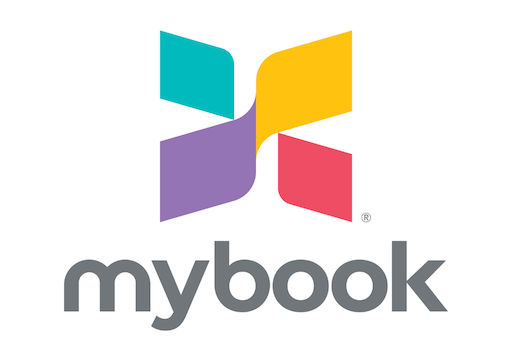Switch Google Analytics Consultant: Effortless Steps to Success
Switching your Google Analytics consultant isn’t just a practical business decision; it can be a game changer for how you understand and utilize data. Whether you’re dissatisfied with your current consultant’s performance, seeking fresh insights, or even pivoting your digital marketing strategy, making the switch can feel overwhelming. Thankfully, it doesn’t have to be that way. Here, we’ll outline effortless steps to ensure your transition is smooth and successful, helping you harness the true power of your analytics tools.
Identifying the Need for Change
Before diving into the steps to switch Google Analytics consultants, it’s important to identify why you need to make this move in the first place. Perhaps your analytics reports haven’t delivered actionable insights lately, or you feel your consultant isn’t aligned with your business goals. For instance, I once worked with a startup whose metrics were continually misinterpreted, leading to misguided marketing spends. It wasn’t until they switched consultants that they finally received clear, actionable recommendations.
By recognizing the signs that a change is necessary, you’re already on your way to harnessing the data more effectively.
Evaluating Potential Consultants
When you’re ready to start looking for a new consultant, make a list of criteria that matter most to you. Are you looking for someone with a deep understanding of your specific industry, or do you prioritize innovative analytics techniques? It’s essential to find a consultant who aligns with your unique needs.
Try to schedule initial consultations with a few candidates to gauge their expertise and communication style. Ask them about past projects to see how they address challenges similar to yours. The right consultant doesn’t just analyze data; they interpret it, providing your team with strategic foresight.
Transitioning Your Data
Once you’ve chosen a new consultant, the next step in how to switch Google Analytics consultants is ensuring that the transition of data is effortless. Depending on the complexity of your setup, this process can be straightforward or slightly involved. Here’s how to make it seamless:
1. Prepare Your Current Data: Before lines of communication are officially opened with your new consultant, consolidate and organize your existing data. A clean record allows for a smoother transition.
2. Collaborate on a Transition Plan: The new consultant should work closely with your current one, if possible. This transitional dialogue can help clarify technical details and expectations.
3. Set Up New Tracking: Ensure that your new consultant performs an audit of your current tracking configurations. Often, companies miss key metrics that can significantly enhance their data collection and reporting methods.
Jumpstart Collaborative Efforts
Once you’ve successfully switched Google Analytics consultants, the real work begins: collaborating to turn insights into action. Regular communication is key here. Schedule recurring meetings to review data interpretations, discuss emerging industry trends, and align strategies.
I recall a time when my client’s new consultant insisted on bi-weekly strategy sessions. Initially, it felt excessive, but those meetings led to finding new customer segments we hadn’t considered before. Suddenly, our marketing strategy shifted from reactive to proactive.
Maximizing Your Analytics Tools
As you settle into this new relationship, it’s time to maximize the tools at your disposal. Regular check-ins on performance metrics can reveal valuable insights over time. Your consultant should also demonstrate new features and ways to extract deeper insights from Google Analytics.
Investing in training for your in-house team can also elevate your approach. Even the most skilled consultant can only do so much without a well-informed team to interpret and act on the findings.
Sustaining a Long-Term Relationship
Finally, focus on building a long-term partnership with your new consultant. This means providing feedback on their services and making adjustments as necessary. Establish a reciprocal flow of information, where both parties feel comfortable sharing insights and brainstorming strategies.
As you grow and evolve, the relationship should as well. A good consultant will evolve with your business, continually re-evaluating their strategies to ensure you’re leveraging data effectively.
Shifting your consultant can feel daunting, but when approached methodically, it’s an opportunity for growth. Take the time to evaluate your needs, choose wisely, and foster a collaborative environment; you may find yourself on a path to success that feels effortless.
FAQs
1. What should I look for when selecting a new Google Analytics consultant?
Look for industry expertise, communication styles, and past project successes. Asking specific questions about their approach to analytics can also help you ensure a good fit.
2. How can I prepare my data for the new consultant?
Consolidate and organize your existing data before the switch. This might include cleaning up old metrics and ensuring your tagging is accurate.
3. How can I ensure a smooth transition with my new consultant?
Schedule a collaborative transition plan involving both the current and new consultants, if possible. Regular communication during this period can help mitigate any hiccups.
Related Posts
Switch Google Analytics Consultant: Effortless and Effective Guide
Switching your Google Analytics consultant doesn’t have to be overwhelming—its an opportunity to enhance your data insights and drive your business forward. Whether youre seeking more tailored strategies or...
Switch Online Analytics Consultant: Effortless Guideline for Success
Are you ready to transform your business strategy with data-driven insights? A switch online analytics consultant can make the process effortless, guiding you through the complexities to unlock valuable...












